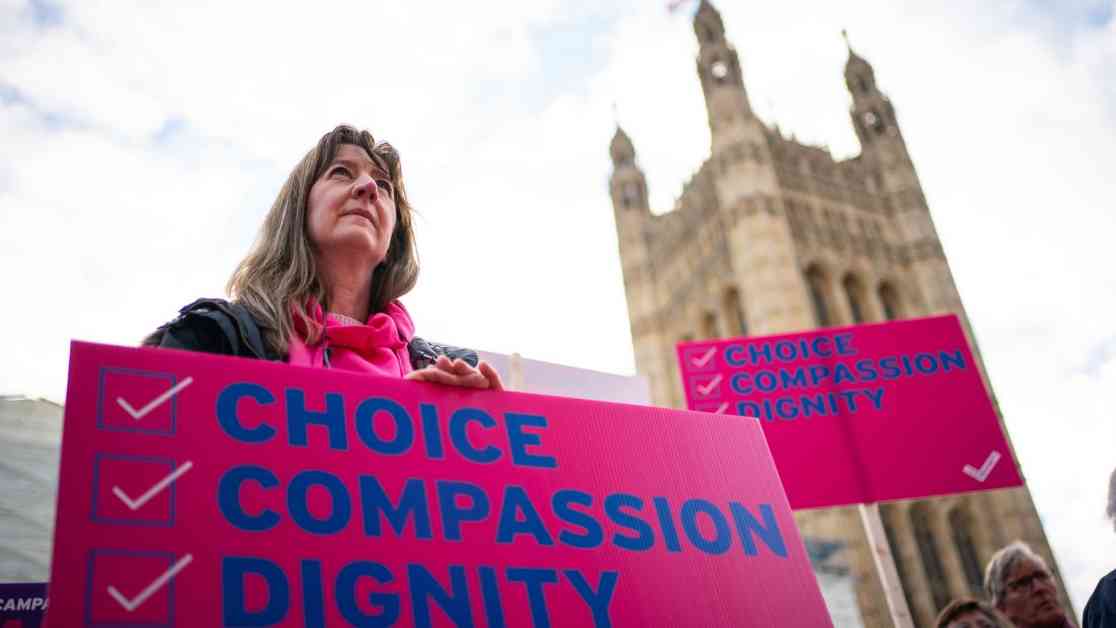Proposed Assisted Dying Legislation: A Detailed Overview
The proposed assisted dying legislation, known as the Terminally Ill Adults (End of Life) Bill, has sparked discussions and debates among MPs and the public. The bill, proposed by Labour MP Kim Leadbeater, aims to provide individuals in England and Wales with the option to end their own lives under certain conditions.
The bill outlines specific requirements for individuals who wish to pursue assisted dying, including being over 18 years old, having a life expectancy of six months or less, and having the mental capacity to make such a decision. Additionally, the bill emphasizes the importance of ensuring that the individual’s wish to die is free from coercion or pressure at every stage of the process.
One of the key aspects of the bill is the involvement of healthcare professionals in the assisted dying process. Doctors will play a crucial role in assessing the eligibility of individuals, ensuring that they have made an informed decision, and providing information on alternative treatment options such as palliative and hospice care. Importantly, doctors will not be obligated to participate in the assisted dying process if they have any objections.
Moreover, the bill stipulates that individuals must self-administer the medication that will end their lives, with doctors prohibited from directly administering the drugs. This measure aims to uphold the autonomy and agency of individuals seeking assisted dying while ensuring that the process remains voluntary and free from external influence.
In terms of oversight and accountability, the bill includes provisions for monitoring and reporting on assisted dying cases. The health secretary and chief medical officer will oversee the implementation of the legislation and report regularly to parliament on its outcomes and impacts. Additionally, strict penalties, including up to 14 years in prison, will be imposed on those who violate the law by coercing or pressuring individuals to end their lives unlawfully.
Supporters of the bill highlight its robust safeguards and thorough criteria for eligibility, which they believe set a new standard for assisted dying legislation worldwide. The involvement of two doctors, a High Court judge, and stringent assessment processes are seen as essential components of ensuring the ethical and legal implementation of assisted dying.
Despite some concerns and opposition from certain MPs and stakeholders, Kim Leadbeater remains confident in the strength and integrity of the bill. She emphasizes the extensive consultations and research conducted in developing the legislation, which has incorporated diverse perspectives and feedback from various organizations and individuals.
Overall, the proposed assisted dying legislation represents a significant step towards providing individuals with greater autonomy and choice at the end of life. By establishing clear guidelines, safeguards, and oversight mechanisms, the bill seeks to uphold the dignity and rights of terminally ill individuals while addressing complex ethical and legal considerations surrounding assisted dying.













